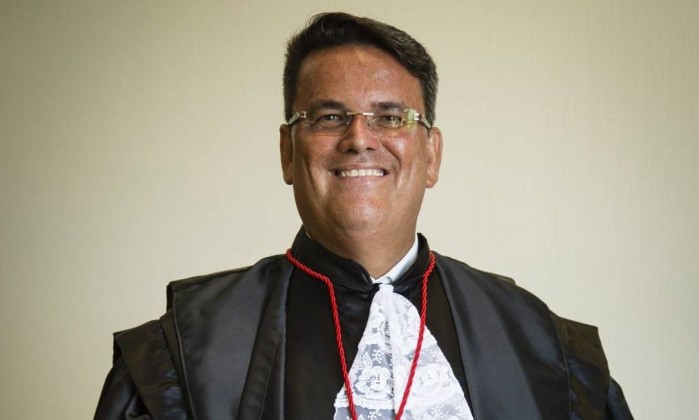RIO DE JANEIRO, BRAZIL – The presiding judge of the Rio de Janeiro Appellate Court, Claudio de Mello Tavares, is a repeat offender in statements contrary to the LGBTI community, writes Folhapress in its latest report.
He is the judge responsible for overturning the injunction preventing the City of Rio de Janeiro from censoring books at the Biennale on Saturday, September 7th.

The court decisions follow a recommendation from Mayor Marcelo Crivella to remove the comic book “Avengers – The Crusade of Children” from circulation. The work features an image of two men kissing each other, fully dressed.
Ten years ago, Tavares said that “heterosexual citizens cannot be denied the right, based on their religious faith or other ethical and moral principles, to perceive that homosexuality is a deviation of behavior, a disease, that is, something malignant to the human person and to society, to be repressed and treated and not disclosed and upheld by society”.
He judged a popular action that questioned the state and municipality of Rio for allocating resources to the 2002 Gay Pride Parade. He ended up denying the request, but his speech angered rights advocates in the segment.
In the April 1st, 2009 court decision, the judge repeatedly used the term “homosexuality,” which LGBTI groups refute for bearing a pejorative connotation of disease.
He wrote at the time that homosexuals “must have their sexual choice, their beliefs about homosexuality and their other rights as citizens equal to heterosexuals respected”.
However, he cautioned: those who opposed affection among people of the same sex had the “right to fight, in a peaceful manner, to contain social acts that represent an incentive to the practice of homosexuality and, in particular, with support from public bodies and, much less, with financial resources”.
Challenges regarding LGBTI policies and festivities are not the only source of friction between Tavares and progressive wings of society.
In August, the judge questioned the authenticity of 1,500 letters from children and residents of the Maré favela complex in Rio’s north zone.
They had been sent to the Court by an NGO as part of a request to re-establish a Public Civil Action regulating police operations in Maré, which had been suspended in June.
The drawings included, among others, a helicopter shooting people in the favela and a policeman shooting a black man. In an interview with G1 newssite, Tavares said an investigation was required to determine if there had been anything underlying the letters and suggested that they had been ordered.
He was supported by the governor of Rio de Janeiro, Wilson Witzel, to whom the demonstration had been manipulated by traffickers and was a strategy to intimidate the government.
In 2017, the AMAERJ (“Association of Magistrates of the State of Rio de Janeiro”) reproduced a text on Tavares that emphasizes his religiosity. Attending masses on Sundays, the then Inspector General of Justice said he was an Apostolic Roman Catholic with an obligation to “help his fellow men”.
Mello Tavares attends Sunday masses. He carries little of his faith and Christian spirit into his everyday life.

